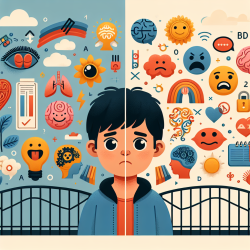Introduction
The COVID-19 pandemic has been a global crisis, affecting mental health and triggering various psychological responses. The research article "A Psychoanalytic View of Reactions to the Coronavirus Pandemic in China" by Jerome S. Blackman, M.D., provides valuable insights into these reactions and offers guidance for practitioners in managing stress and trauma. This blog will explore how these psychoanalytic principles can enhance practitioner skills and encourage further research.
Understanding Psychological Reactions
The pandemic has led to a range of psychological responses, from realistic fear to unconscious defensive reactions. Practitioners can benefit from understanding these reactions to provide better support. Key reactions identified in the research include:
- Obsessional Cleaning: While cleaning is a necessary precaution, it can become a compulsive symptom. Practitioners should assess if cleaning behaviors are disproportionate to the actual risk and address underlying anxieties.
- In-Home Conflicts: The stress of quarantine has exacerbated unresolved childhood issues and family conflicts. Practitioners can use psychoanalytic techniques to explore these dynamics and facilitate healthier communication.
- Emotional Depletion in Health Workers: Health workers have faced emotional exhaustion. Practitioners should prioritize self-care and supportive interactions to rejuvenate their emotional reserves.
Implementing Psychoanalytic Interventions
Psychoanalytic principles offer valuable tools for managing pandemic-related stress and trauma. Practitioners can implement the following interventions:
- Interpretive Understanding: Help clients understand the defensive purposes of their behaviors, such as anger or compulsive cleaning, to reduce symptomatic behavior.
- Supportive Interactions: Encourage group support and verbalization of emotions to contain anxiety and foster resilience.
- Re-grief Therapy: For those experiencing delayed mourning, facilitate emotional discharge and support identification with survivors.
Encouraging Further Research
While the research provides valuable insights, it also highlights the need for further exploration. Practitioners are encouraged to engage in research to deepen their understanding of pandemic-related psychological phenomena and refine therapeutic approaches.
Conclusion
The COVID-19 pandemic has underscored the importance of understanding psychological reactions and implementing effective interventions. By applying psychoanalytic principles, practitioners can enhance their skills and contribute to better mental health outcomes. To delve deeper into the research, please read the original paper, A psychoanalytic view of reactions to the coronavirus pandemic in China*.










